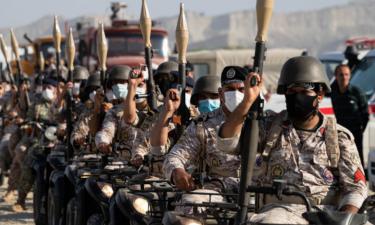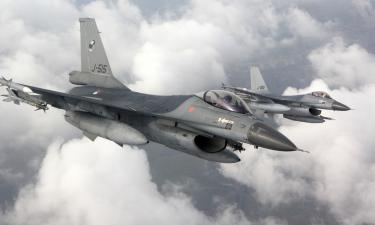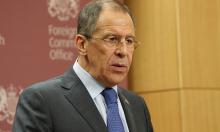Estonian ministers lay flowers at Bronze Soldier to mark WWII victory
For the first time Estonia has paid tribute to the Red Army that has freed this country from Nazis. Government ministers laid flowers at a disputed Soviet statue on Tuesday.
The government was hoping the gesture would begin a process of reconciliation between ethnic Estonians and Russian-speakers, 10 days after Estonia was hit by riots over the decision to move the statue from downtown Tallinn to a cemetery outside the city center.
Prime Minister Andrus Ansip and Defense Minister Jaak Aaviksoo participated in the ceremony at the cemetery, which was observed by a small group of onlookers.
The Swedish ambassador to Estonia, Dag Hartelius, laid a wreath on behalf of the Western diplomatic corps. Russian Ambassador Nikolai Uspensky refused to take part in the ceremony.
Russia was furious at Estonia's decision to move the statue and a nearby war grave from downtown Tallinn. On Monday Foreign Minister Sergey Lavrov, lashed out at the European Union and NATO for doing nothing to stop the monument's relocation.
Estonia's ethnic Russians - who make up about one-fourth of the country's population of 1.3 million - took their frustration to the streets, resulting in the worst rioting Estonia has seen since it broke from the Soviet Union in 1991.
For Russia, the Bronze Soldier symbolizes the enormous human sacrifice the Soviet Union paid in defeating Nazi Germany, while Estonians are reminded of 50 years of Soviet occupation and totalitarian rule.
Earlier on Tuesday Estonian ministers and chief rabbi of Estonia's Jewish community, Shmuel Kot, laid flowers at the former Klooga concentration camp 40 kilometers (25 miles) west of Tallinn.
Subscribe to Pravda.Ru Telegram channel, Facebook, RSS!





